- Home
- Vince Flynn
The Last Man
The Last Man Read online
Thank you for purchasing this Atria Books eBook.
* * *
Join our mailing list and get updates on new releases, deals, bonus content and other great books from Atria Books and Simon & Schuster.
CLICK HERE TO SIGN UP
or visit us online to sign up at
eBookNews.SimonandSchuster.com
CONTENTS
Acknowledgments
Chapter 1
Chapter 2
Chapter 3
Chapter 4
Chapter 5
Chapter 6
Chapter 7
Chapter 8
Chapter 9
Chapter 10
Chapter 11
Chapter 12
Chapter 13
Chapter 14
Chapter 15
Chapter 16
Chapter 17
Chapter 18
Chapter 19
Chapter 20
Chapter 21
Chapter 22
Chapter 23
Chapter 24
Chapter 25
Chapter 26
Chapter 27
Chapter 28
Chapter 29
Chapter 30
Chapter 31
Chapter 32
Chapter 33
Chapter 34
Chapter 35
Chapter 36
Chapter 37
Chapter 38
Chapter 39
Chapter 40
Chapter 41
Chapter 42
Chapter 43
Chapter 44
Chapter 45
Chapter 46
Chapter 47
Chapter 48
Chapter 49
Chapter 50
Chapter 51
Chapter 52
Chapter 53
Chapter 54
Chapter 55
Chapter 56
Chapter 57
Chapter 58
Chapter 59
About Vince Flynn
To all of my teachers and coaches at Saint Thomas Academy who taught me that to succeed in life, you need to raise the bar, not lower it.
ACKNOWLEDGMENTS
TO my agent and friend Sloan Harris, for another smooth contract negotiation; you always come through. To Kristyn Keene at ICM, congrats on your promotion, and to Shira Schindel, who will be taking over for everyone’s favorite assistant. To Chris Silbermann, for a stellar job negotiating the extension with CBS Films. To Lorenzo Di Bonaventura and Nick Wechsler, for inching the movie ever closer to reality. I wish I had your patience. To Rob Richer, who continues to enlighten me on espionage, terrorism, and geopolitics. You truly are one of the good guys.
To my editor and publisher Emily Bestler, thank you for fifteen years of a great partnership and more to come. To Kate Cetrulo and Caroline Porter at Emily Bestler Books, for taking care of all the details I miss and gently reminding me that I need to hand in my homework. To Jeanne Lee, you never disappoint. Thanks for another great cover. To Al Madocs, my goal is that one of these years I will not have to put you in the acknowledgments, but for now, I’m sorry, yet again, for putting you through the wringer. To David Brown, of all the people I work with, no one makes me laugh more. You are a joy to work with, and so is Ariele Fredman, who we all know really runs the department. To Judith Curr and Louise Burke, thank you for all your continued support. To Carolyn Reidy, for one of the smoothest, most business-minded contract negotiations that I have ever been involved in. It is an honor to still be part of the Simon & Schuster family after fifteen years.
Thanks to a lot of prayers and great medical care, I’m feeling better than I’ve felt in years. To all the friends and family in the Twin Cities and beyond who have continued to support my family through prayers, well wishes, and great kindness, I am humbled. To Dr. Bill Utz and Dr. Eugene Kwon and the amazing people you work with—cancer sucks, but somehow you make the journey enjoyable. To Dr. Douglas Olson, my radiologist, you are in my prayers every day. To my friend Dr. Mike Nanne, I am in awe of your courage. To Misty Mills, Paul Hesli, Leslie Vadnais, Jodi Bakkegard, and Cristine Suihkonen, for all that you do for my family.
To my darling wife, Lysa, who has always been wise beyond her years, thank you for giving me some of that wisdom when I really needed it. Now if I could just get some of that grace from you, I’d really have things moving in the right direction. You are my favorite thing about life.
CHAPTER 1
JALALABAD, AFGHANISTAN
THE four dead men were lined up on the living room floor of the safe house. Mitch Rapp started with the one on the left. The bearded face, the dark, lifeless eyes, and the dime-sized bullet hole that marked the center of the man’s forehead were all expected. One bullet, nice and neat—the way Rapp would have done it. The next two bodyguards looked the same, including red pucker marks in the center of their brows. The fourth Afghani was a different story. He’d been shot through the back of the head. A quarter of his face was now a jagged crater of flesh, blood, and bone. The exit wound told him the man had been shot by something a lot bigger than a 9mm—probably a .45 caliber with ammunition that pancaked and tumbled for maximum damage. There was nothing about this mess to give Rapp any assurance that things would be fine, but this last little twist cracked open the door on something he did not want to consider.
Rapp set the troubling thought aside for a second, tried to imagine how it had gone down. The early signs pointed toward a well-coordinated assault. The perimeter security had been breached; phone line, cameras, motion sensors, heat sensors, and even the pressure pads had all been taken off-line. The backup connection through the satellite dish on the roof had also been disabled. Whoever had attacked the safe house had the knowledge and skill to hit the place without setting off a single alarm and alerting the quick-reaction force less than a mile away at the air base. According to the experts at Langley this was never supposed to happen. Four years earlier they had claimed the safe house was impregnable against any threat that the Taliban or any other local group could come up with. Rapp had told those same experts that they were full of shit. He’d never seen an impregnable safe house for the simple reason that people had to come and go.
As with most CIA safe houses, this one was intentionally bland. There was no American flag flown out front and there were no snappy Marines standing post at the main gate. This was a black site where the more unpleasant aspects of the war had been coordinated. Langley didn’t want any official records of the comings and goings of the drug dealers, warlords, arms dealers, local politicians, police, and Afghan Army officers who were on the take.
The house looked like your run-of-the-mill two-story blockhouse in Jalalabad. There were quite a few upgrades that made it unique, but from the outside it looked dingy and run-down just like all the other houses in the neighborhood. The cinderblock wall that surrounded the property was coated with a special resin designed to prevent it from exploding into a million pieces and shredding the house in the event of a car bomb. The simple-looking front door contained a one-inch steel plate and a reinforced steel frame. All of the windows were bulletproof Plexiglas and the high-tech security cameras and sensors were concealed so as to not attract the attention of the neighbors. Langley had even taken the unusual precaution of buying the houses on each side and moving in the bodyguards and their families. All to protect one man.
Joe Rickman was the most cunning and brilliant operative Rapp had ever worked with. They’d known each other for sixteen years. At first Rapp didn’t know what to think of him. Rickman was pure vanilla. There wasn’t a single physical characteristic about him that was memorable. At five-feet-ten he was neither tall nor short. His mousy brown hair matched his dull brown eyes, and his weak chin completed the bland lines of his roundis
h face. On the rare occasion that you heard him speak, he was never animated and his voice was pure monotone—the kind of thing that could put the most restless baby to sleep.
Rickman’s forgettable face allowed him to blend in and those who met him were almost underwhelmed by his presence. For Rickman that was just fine. Much of his success was built on fools underestimating him. He’d worked for the CIA for twenty-three years and it was rumored that he had never set foot inside headquarters. Only a few months earlier Rapp had asked him if the rumor was true. Rickman responded with a soft smile and said that he’d never been invited.
At the time, Rapp took the comment as a self-deprecating attempt at a little levity. Later he realized Rickman was dead serious. Rickman was one of those people who were tolerated only during tough times—usually war. For the last eight years he’d run America’s clandestine war in Afghanistan. More than a billion dollars in cash had passed through his hands. Most of it was used to bribe people into playing on the right team, but a fair amount of the money was used to kill enemies and for a laundry list of other unpleasant things that went with the territory. People back at Langley didn’t want to know what Rickman was up to. They only wanted results, and that was something Rickman was exceedingly good at. Underneath Rickman’s bland façade was a cunning mind that was perfectly suited to the duplicitous, infinitely complicated world of espionage.
Rapp understood the tinge of fear in his boss’s voice when she’d called him a little over two hours ago. When the morning guards showed up, they had discovered the bodies and the absence of Joe Rickman and had immediately alerted John Hubbard, the CIA’s Jalalabad base chief. Hubbard rang his boss in Kabul and the shit rolled uphill from there. Rapp received a call from CIA Director Irene Kennedy while he was sitting down for breakfast in the big mess hall at Bagram Air Force Base. He had just arrived in-country the previous evening on a high-priority mission that was now on hold. Kennedy passed along what little information she knew and ordered Rapp to grab the next Blackhawk to Jalalabad. Rapp didn’t argue. He and four of his team members made the trip and were on the ground in Jalalabad before nine in the morning. Hubbard met them with a three-SUV convoy and a security detail and they rolled to the house.
Langley would want Rickman back, but Rapp got the strange feeling that all things considered, they would prefer the black-ops boss delivered in a body bag. It would be impossible to keep the kidnapping a secret. Rickman’s operational knowledge and reach was too vast to ignore. Entire teams would already be gathered at Langley, working around the clock to assess the damage. If Rapp didn’t find Rickman quickly, then complex, expensive operations would have to be unwound or assets would start showing up in morgues all across the Middle East, Southwest Asia, and beyond. Sooner or later Congress would get wind of the disaster and they would want answers. For a good number of people back at Langley, the only thing worse than Rickman spilling the Company secrets to an enemy would be Rickman testifying before Congress.
Rapp had a long and somewhat complicated history with Rickman. He respected the man, but it had taken a while. Rapp was considering how he would handle a possible order to eliminate Rickman when the towering Hubbard approached.
“This shit is really bad.”
Rapp nodded. “It’s about as bad as it could get.”
Hubbard rubbed his bald head and asked, “How in the hell are we going to find him?”
“At this point I’m not sure.” Rapp knew their chances for success were remote, but they had to start somewhere. “This is going to get really nasty, and if you don’t have the stomach for it, Hub, I suggest you go back to the base and lock yourself in your office.”
Hubbard studied Rapp for a moment and then nodded. “You don’t have to worry about me getting all sensitive on you. I’ve been over here for two years. I’ve seen all kinds of crazy shit.”
Most of that “crazy shit” was stuff done by the enemy. This time they would be the ones crossing the line. “I know you have,” Rapp said, “but trust me, if we’re going to get him back we are going to have to be more ruthless than you can imagine, and if at any point you start to have doubts, that’s fine, step aside, but I need you to promise me you’ll stick your head in the sand and keep your mouth shut.”
Hubbard gave him a nervous smile. “I can do a Sergeant Schultz when I need to.”
“Good,” Rapp replied, even though he had his doubts.
“So where do you want to start?”
Rapp returned his attention to the row of dead men. “The bodyguards.”
Hubbard turned his six-foot-five-inch frame toward the row of men and pursed his lips. “I think we can rule these four out.”
Rapp focused on the man with the cratered face. An inside job was the obvious conclusion, but the bodyguards were all hardened Northern Alliance types. It was possible that one of them could have been bribed into giving up the crucial information on the security system, but unlikely. If one of them had turned, however, it was also possible that the Taliban, or whoever was responsible for this, had decided to kill the inside man as soon as they got what they wanted. The wrench in the works was that Rapp was pretty certain the Taliban had nothing to do with this. He pointed at the man missing part of his face. “Focus on this one. I want to know everything there is to know about him . . . especially his family. Do his parents or wife or kids have medical problems? Does he have a drug problem? Anything you can find.”
“And the other eight?”
A team of interrogation experts from D.C. were in flight but not expected to land for another thirteen hours. “If you have the manpower, you can get started with them, but I doubt they’d hang around after something like this. What would you do if someone gave you a pile of cash to betray your buddies and a man like Rick?” Rickman’s first name was Joe, but everyone who worked with him called him Rick.
“I’d run.”
“That’s right.” Rapp pointed to the man who’d been shot with a .45 caliber. “Focus on this one for now.”
“So you think the Taliban turned him?”
Rapp ignored the question for the moment and asked, “Who moved these bodies?”
“What do you mean?”
“The bodies,” Rapp said as he pointed at the row of four. “They weren’t shot here. Look at the blood on the floor. They were dragged here after they were killed.” Rapp pointed at the stairs. “One of them was dragged down from the second story.”
Hubbard shrugged. “They were lined up like this when I got here.”
“Did the bodyguards move them?”
“Not that I know of. Do you want me to find out?”
“In a minute.” Rapp looked toward the front door where one of the bodyguards was standing post with an AK-47 gripped in both hands. “The neighbors . . . did they hear or see anything last night?”
“No. Not a thing.”
“No signs of forced entry?”
“Not that we’ve discovered, but they wouldn’t need to force their way in if one of these guys were helping them.”
“So no forced entry . . . four bodyguards . . . four headshots . . . four dead men. Anything about that seem unusual to you?”
Hubbard thought about it for a moment and said, “Not sure what you’re driving at.”
Rapp pointed at the bodies one after another, saying, “Nine-millimeter, nine-millimeter, nine-millimeter, .45 caliber, and my bet is they were all fired from suppressed weapons. Pretty accurate work. Good fire discipline. Look at the walls.”
Hubbard did a 360-degree turn and said, “What about them?”
“You see anything?”
“No.”
“That’s the point. You ever seen the Taliban operate like this? Four shots, four hits, and not a shot more. The Taliban likes to get the lead out. You know their MO. They would have rolled up on this place with three or four trucks and started unloading RPG rounds at all three buildings. This place would be riddled with bullets. This was done by pros.”
Hubbard made a s
our face and then nodded. “Yeah . . . you’re right. The towelheads like to blow shit up. This is more like something our guys would do . . .”
Hubbard kept talking, but Rapp had stopped listening. The idea that U.S. Special Operators had been involved was something he hadn’t considered and something he didn’t want to consider. From the moment Rapp had heard Rickman was missing, there was a gnawing fear that he was about to head down the rabbit hole. Rickman excelled at his job for the simple reason that he could think five, ten, fifteen, even twenty steps ahead of the enemy, and everyone else, for that matter. There had been many times when Rapp didn’t understand what the man was up to because he wasn’t smart enough to follow Rick’s thinking.
“How about those assholes from the ISI?” Hubbard asked.
Rapp had considered the less-than-loyal members of the Pakistani Intelligence Service. They would be on the list as well as others. “Don’t forget the Iranians, the Russians, and the Chinese.” And there was one other possibility that Rapp wasn’t quite prepared to mention.
“My money’s on the ISI. This is just the kind of bullshit they’d pull.”
A thought occurred to Rapp. “Where’s the dog? That big frickin’ Rottweiler that never left Rick’s side?”
“Ajax . . . he died a month ago.”
Rapp was surprised by the news. “What was wrong with him?”
“Don’t know. Rick was pretty bummed out, though. Dog got sick, he took him to the vet and had to put him down. I think Rick said it was cancer or something like that.”
One of Rapp’s team members came down the stairs with a disturbed look on his face. The man had blond hair and blue eyes and was pushing fifty. “Not good,” was all he had to say.
Rapp looked at Scott Coleman and said, “Please tell me you’re talking about something other than the safe. Tell me the safe is untouched and all the cash, drives, and laptop are safely tucked inside.”
Coleman shook his head. “All gone. Completely cleaned out.”
Even though Rapp had expected it, he had held out some hope that he could give his boss a piece of good news. “Shit, I need to call Irene and let her know.” Rapp reached for his phone, but stopped upon hearing a commotion at the front door.

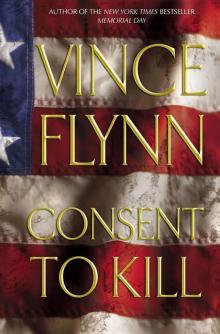 Consent to Kill
Consent to Kill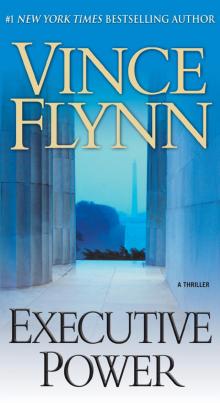 Executive Power
Executive Power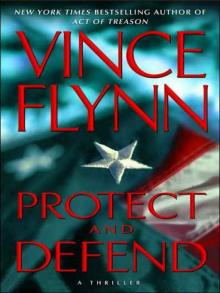 Protect and Defend
Protect and Defend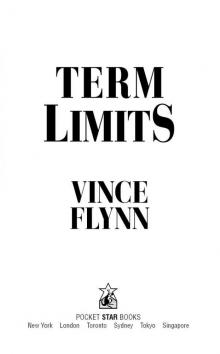 Term Limits
Term Limits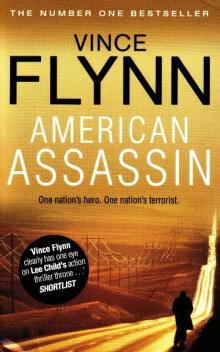 American Assassin
American Assassin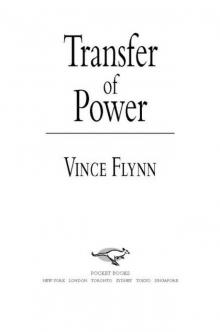 Transfer of Power
Transfer of Power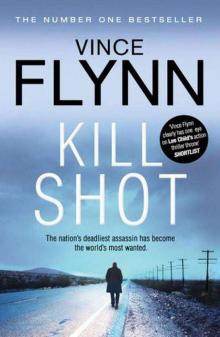 Kill Shot
Kill Shot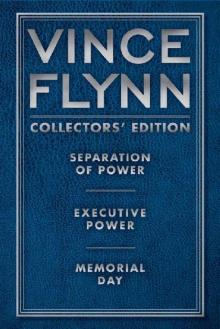 Vince Flynn Collectors' Edition 2
Vince Flynn Collectors' Edition 2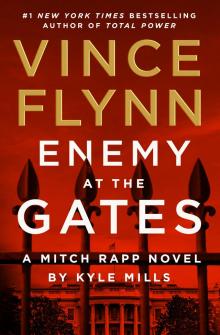 Enemy at the Gates
Enemy at the Gates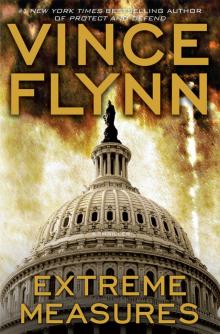 Extreme Measures
Extreme Measures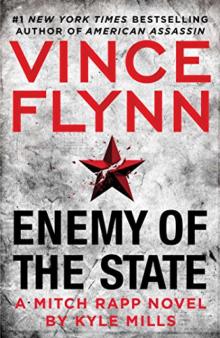 Enemy of the State
Enemy of the State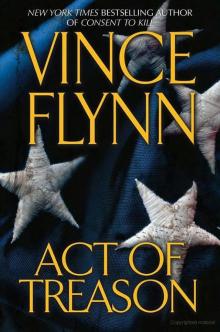 Act of Treason
Act of Treason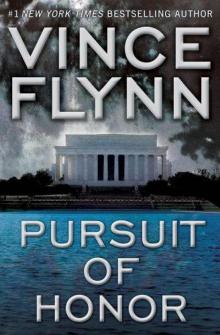 Pursuit of Honor
Pursuit of Honor The Survivor
The Survivor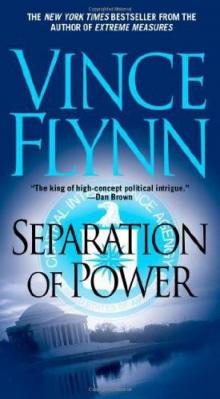 Separation of Power
Separation of Power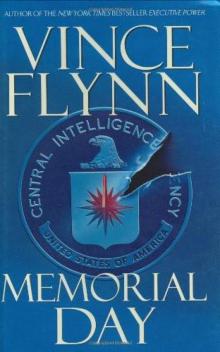 Memorial Day
Memorial Day The Last Man
The Last Man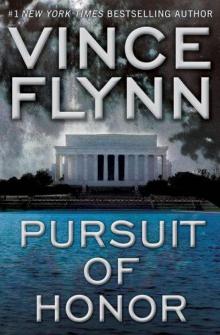 Pursuit of Honor_A Thriller
Pursuit of Honor_A Thriller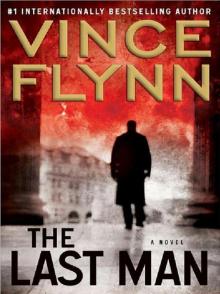 Mitch Rapp 13 - The Last Man
Mitch Rapp 13 - The Last Man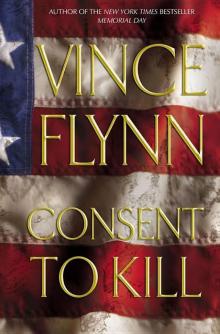 Consent to Kill:
Consent to Kill: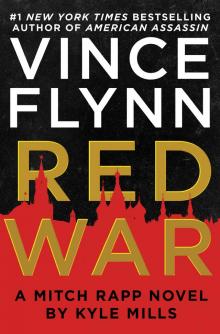 Red War
Red War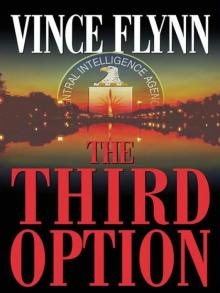 Mitch Rapp 02 - The Third Option
Mitch Rapp 02 - The Third Option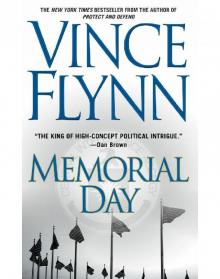 Mitch Rapp 05 - Memorial Day
Mitch Rapp 05 - Memorial Day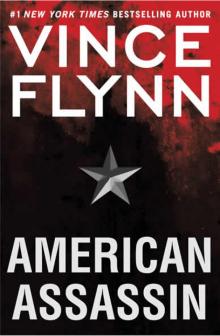 Mitch Rapp 11 - American Assassin
Mitch Rapp 11 - American Assassin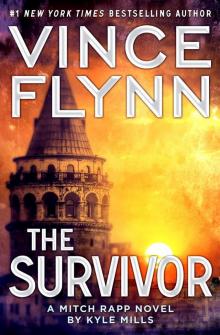 Mitch Rapp 14 - The Survivor
Mitch Rapp 14 - The Survivor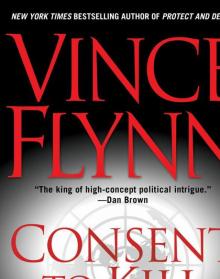 Mitch Rapp 06 - Consent to Kill
Mitch Rapp 06 - Consent to Kill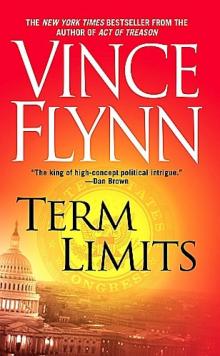 Term Limits mr-1
Term Limits mr-1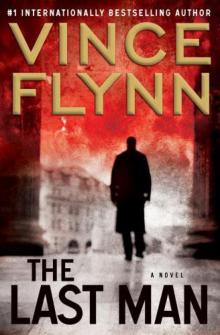 The Last Man mr-13
The Last Man mr-13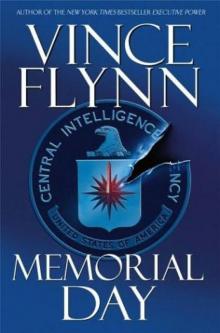 Memorial Day mr-5
Memorial Day mr-5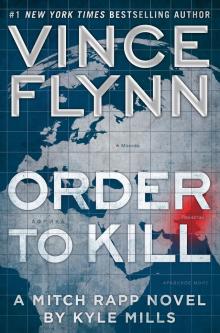 Order to Kill
Order to Kill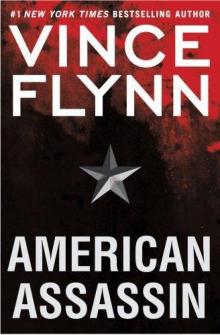 American Assassin: A Thriller
American Assassin: A Thriller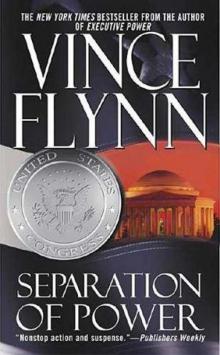 Separation of Power mr-3
Separation of Power mr-3